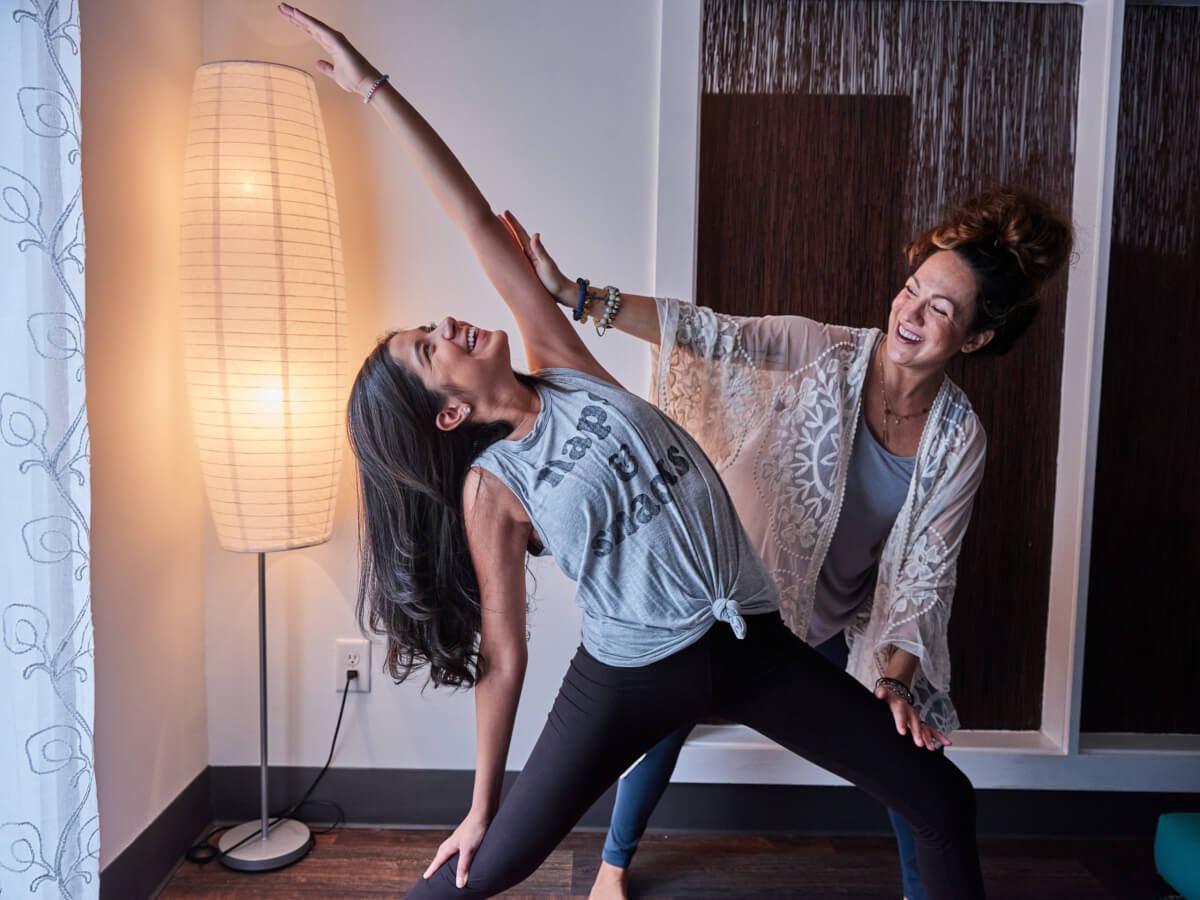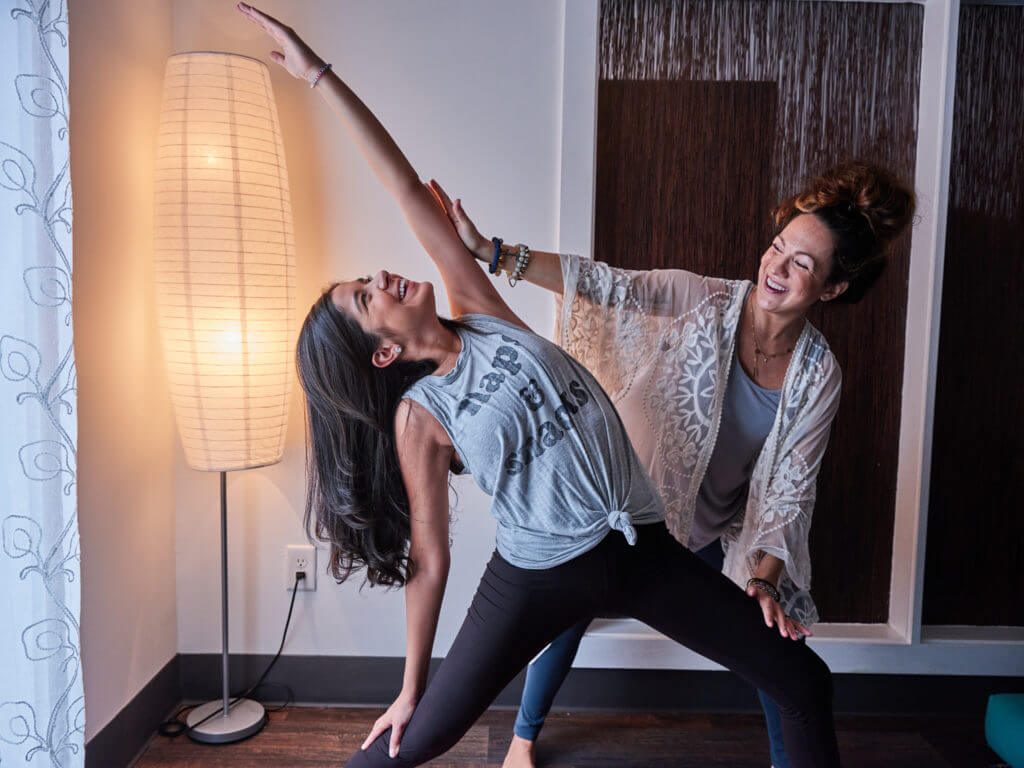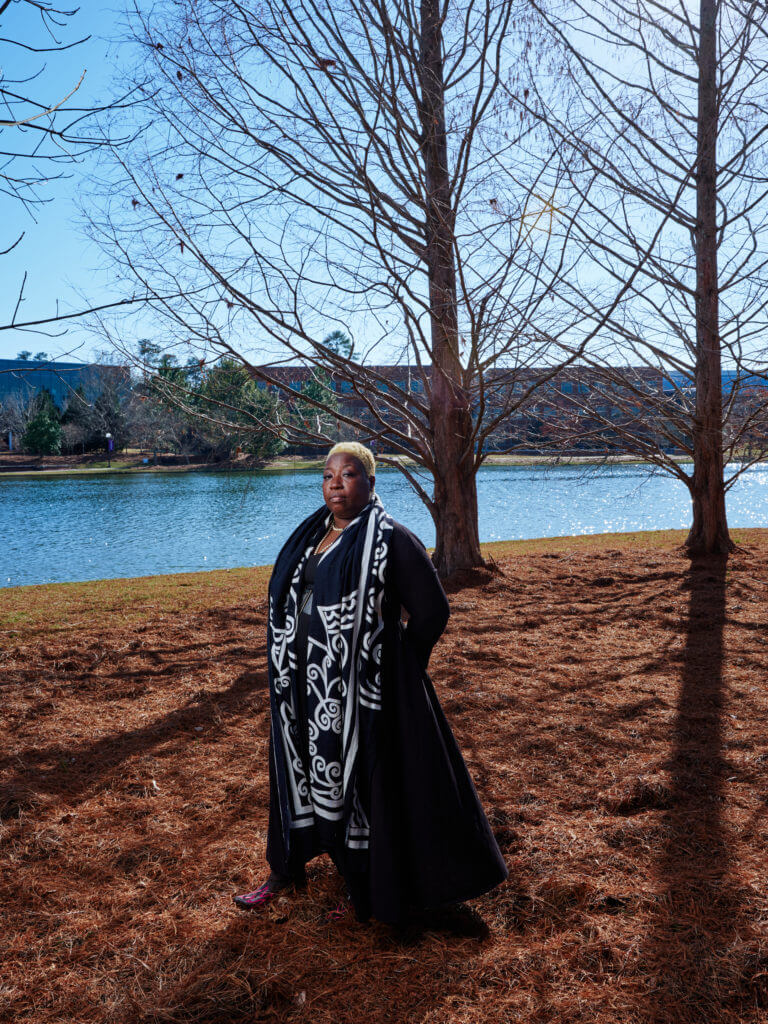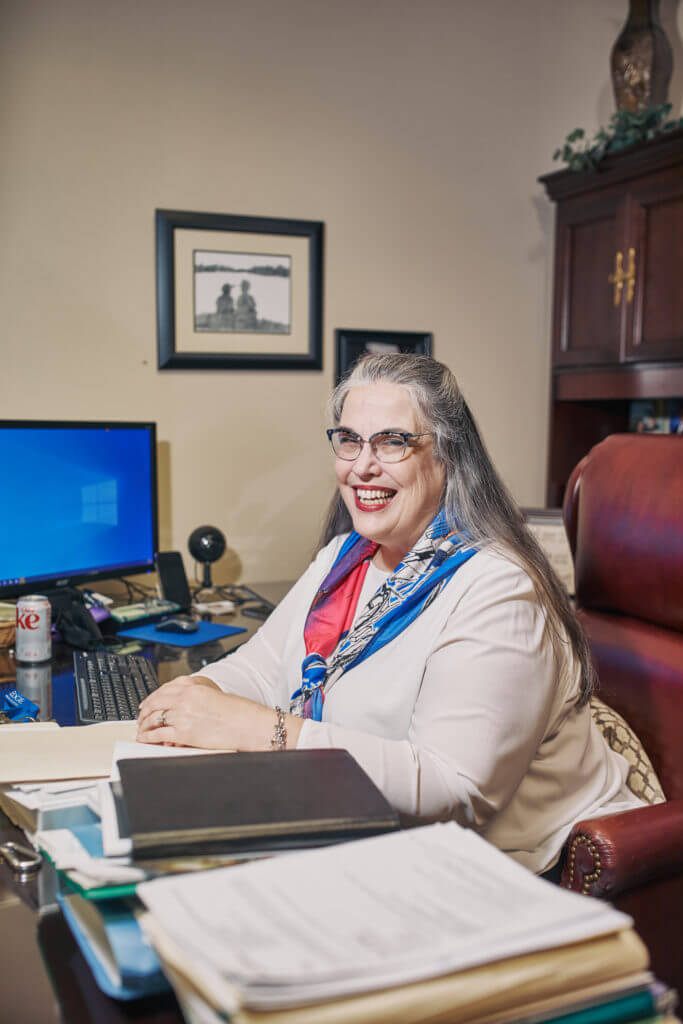
Mental health matters
Many local organizations offer help to those experiencing stress and anxiety from the ongoing pandemic
By Edna Ruiz
Photography by Matt Odom
We’re all dealing with it, whether we want to admit it or not. This COVID-19 pandemic has affected everyone. Not everyone has gotten the virus and suffered the physical health effects, but everyone’s mental health has been impacted.
The stress of employment, worry of getting the virus or giving it to other people, grief of losing a loved one, and loneliness of isolation to protect yourself and others are all factors that may weigh on us. They also may have a ripple effect if you don’t take care of those feelings. While vaccines are helping, the virus is not disappearing any time soon.
We are continuing to learn about new strains like Omicron, which may have many of us scared and worried, as we deal with an anxiety we have never dealt with before.
Since the start of the pandemic, doctors across the world have seen an increased need for mental health help. According to the American Psychological Association, rates of anxiety and depression among adults were four times higher between April 2020 and August 2021 than they were in all of 2019.
Our local doctors are seeing the increase as well. Since March 2020, River Edge Behavioral Health has experienced a 23.9 percent increase in the number of people needing professional help with mental health and substance abuse.
“We’re not surprised by that, given the CDC’s study and people experiencing mental distress,” said Dr. Shannon Terrell Gordon, CEO at River Edge. “Nobody has lived through this pandemic before in their lifetime and it has had impacts on health, grief and employment. So, it has rocked life as we’ve known it, which has been challenging for folks.”
Gordon said River Edge has specifically seen an increase in phone calls from people dealing with anxiety and depression, and from people who once dealt with substance abuse, who are finding it difficult to stay sober.
“A lot of people look to self-help groups for support in their ongoing sobriety,” said Gordon. “When you can’t meet or you have to meet six feet apart, that is a struggle.”

HEALING UNSEEN WOUNDS
While still working to treat those with COVID-19, local hospital systems like Piedmont Macon and Atrium Health Navicent also are working to cure mental health wounds. Both systems have seen a surge in people seeking mental health help, but doctors said they were expecting that.
“We are social animals as human beings. So, being forced to stay away is really a source of significant stress. People have had to change their entire lifestyles,” said Dr. Cesar Figueroa, Piedmont Macon Medical Director for Behavioral Health Services. “I don’t think these feelings are going to go away right away. Only time and professional help are going to make a difference for people.”
Bonnie Gifford, Director of Behavioral Health at Atrium Health Navicent Primary Care Center of West Macon, urges those in need to try therapy.
“To anyone dealing with any of these feelings or issues, I would suggest seeking help,” Gifford said. “They don’t have to keep coming if they find out it’s not something that benefits them, but if they come and try it, they’ll be surprised.”
These healthcare facilities have several programs already in place and available for people battling depression, anxiety, substance abuse and so much more. Since the pandemic, they have started using virtual and telehealth to treat patients, but have started to offer in-person treatment again.
THE STATE STEPS IN
The Georgia Department of Behavioral Health and Developmental Diseases (DBHDD) also has stepped up to help anyone experiencing anxiety, depression and anything else the pandemic may have triggered.
“At the beginning of the pandemic, we anticipated that we would have an increase in people who would not have normally identified themselves as having a mental health illness or even having an addiction,” said Monica Johnson, DBHDD director. “The pandemic brought out stress in everyone. It demonstrated that individuals are all on a continuum of being one event or one catastrophic experience away from having trouble with mental health.”
In 2020 at the start of COVID-19 sweeping our nation, DBHDD opened an emotional support line. The Georgia COVID-19 Emotional Support Line is aimed at helping anyone dealing with stress, anxiety or sadness who wants to talk through it with a professional, or even someone who has gone through the same experience. The line is available 8 a.m.-11 p.m. Monday through Sunday. Call or text 866-399-8938. The Georgia Crisis and Access Line (GCAL) is also open 24/7 if immediate help is needed. Both lines are free to everyone.
The DBHDD also offers several different programs for a variety of behavioral health services such as substance abuse, mental health for adults and children, prevention and achieving a life of recovery. Find the service that works for you at dbhdd.georgia.gov.
While there are free programs and services, state legislators are working to increase mental health care access for everyone. In January 2022, they introduced House Bill 10-13. The bipartisan bill is sponsored by State Reps. Todd Jones and Mary Margaret Oliver. The bill addresses equality in insurance when it comes to mental health. This would mean that people experiencing behavioral health challenges such as depression or substance use disorder are covered equally by insurance, as if it were a physical issue.

JOINING FORCES
While local healthcare systems continue to provide these programs, people in our community are joining forces to make mental health care even more accessible and friendlier for people who may find seeking help a bit scary.
Right after taking office in January 2021, Macon-Bibb County Mayor Lester Miller and his administration immediately worked to bridge the gap between mental health access and our community. He worked to find the right people to lead the Macon Mental Health Matters initiative. In February 2021, he introduced the county’s partnership with the Southern Center for Choice Theory LLC, a counseling and therapy service organization. The county approved $600,000 in CARES Act funds to provide several free mental health services to people in need.
“Because of the no-cost model associated with the Macon Mental Health Matters initiative, we are seeing more people able to access more counseling,” said Andrea Cooke, development director at the Southern Center. “And it’s being more socially accessible for everyone to talk to somebody. So, removing that barrier of cost has really improved people’s ability to access mental health services.”
Cooke and her team have stayed busy since the initiative’s launch. They offer anger management classes, parenting classes, classes for seniors and different support groups. They have traditional counseling, but also offer counseling tied with other activities such as knitting and journaling. Every month, along with Macon Head Space, they hold Mental Health Pop-Up gyms. The gyms go into different neighborhoods throughout Macon-Bibb to offer therapy, yoga and meditation.

REACHING OUT TO YOUTH
Cooke said the Southern Center is always looking for new ways to reach people, especially the younger generation.
“We focus more on working with very young populations because a lot of the research out there is that you have to start early,” said Cooke. “Really the only way to change the trajectory of a young person’s life is to provide adequate, trauma informed, cultural competence, as well as view young people with cultural humility.”
Our youth have dealt with a lot during this pandemic, especially those in school. Many missed out on big events like prom and graduation. Others had no choice but to stay home, which can sometimes not be the best situation, said Cooke. Many students turned to school as a safe space, so when the schools shut down, that safe space was no longer there. Macon Mental Health Matters is hoping to go into more schools to talk about counseling and the help that’s available to students. In December, Mayor Miller and Cooke’s team went to Southwest High School to talk to students about violence prevention and mental health.
“We want them to know we are here to help and they are not alone,” Cooke said. “We have an opportunity. These young people could either be young people in whom we allow PTSD to win and not provide adequate resources, or we can fix it.”
As we approach the third year of dealing with COVID-19, it’s safe to say we do not know what this year will bring. The number of cases fluctuates, and some places have begun to shut down once again. Fear and anxiety are still lingering with all of us.
“We all need to operate with a little more grace and expect the person who we are encountering to have experienced something awful over the last two years, because I think we’re all just walking around now, hurt,” said Cooke.
The important thing to remember is that you are not alone.
“People want to have more conversations about mental health because of what we’re seeing with the pandemic,” said Johnson. “I think that’s a good thing, because we should be talking about it. It helps normalize the conversation so people can get the help they need.”
In future issues, we will continue to explore the importance of mental health. If you know of an organization we should reach out to, email us at hello@maconmagazine.com.
Flowing into the conversation
IF YOU’RE LOOKING FOR A DIFFERENT WAY to talk about your feelings and stresses, try yoga therapy. Megan Carson, founder of Sparks Yoga and a former social worker, is using her experience and what she loves to reach people in a unique way. She recently started to offer yoga therapy.
“What I found, especially with my private clients who were doing yoga, is that it was like a therapy session anyway. We ended up talking just as much as we were moving,” said Carson.
She went back to school to get her license for therapy and has blended the two together. She will usually meet a client where they are and each session is different, but her goal is to have a blend of talking therapy, mindful breathing and yoga.
Carson said she wants to make this therapy session as easy as possible, since people often get spooked by formal and traditional therapy. She starts by sitting in a comfortable place and chatting with a client. They talk about anything the client wants to talk about, then they move onto a yoga mat to stretch. Carson said this is when the client usually starts to open up more and the conversation really starts flowing.
“We need therapy for our minds just as much as our bodies, just as much as our emotions,” said Carson. “Especially now, people are feeling the consequences of the pandemic, including the emotional tolls it has taken.”
Carson is taking clients of all ages, and has recently been getting more calls for yoga therapy with children.
“They really open up a lot,” she said.
Get help now
There are many local services available to help you navigate your feelings and it is important for you and your loved ones to seek help. Help comes in many different ways, from yoga and knitting to virtual calls. Find what works for you. If you know of any other mental health services in our community, email them to hello@maconmagazine.com.
- Macon Mental Health Matters: maconmentalhealthmatters.com
- Yoga Therapy with Megan Carson: megan@sparksmaconyoga.com
- Piedmont Macon: piedmont.org/behavioral-health/behavioral-health-services-macon| 478-765-7000
- Atrium Health Navicent Primary Care Center of West Macon: 478-633-5500
- River Edge Behavioral Health: river-edge.org | 478-803-7600







